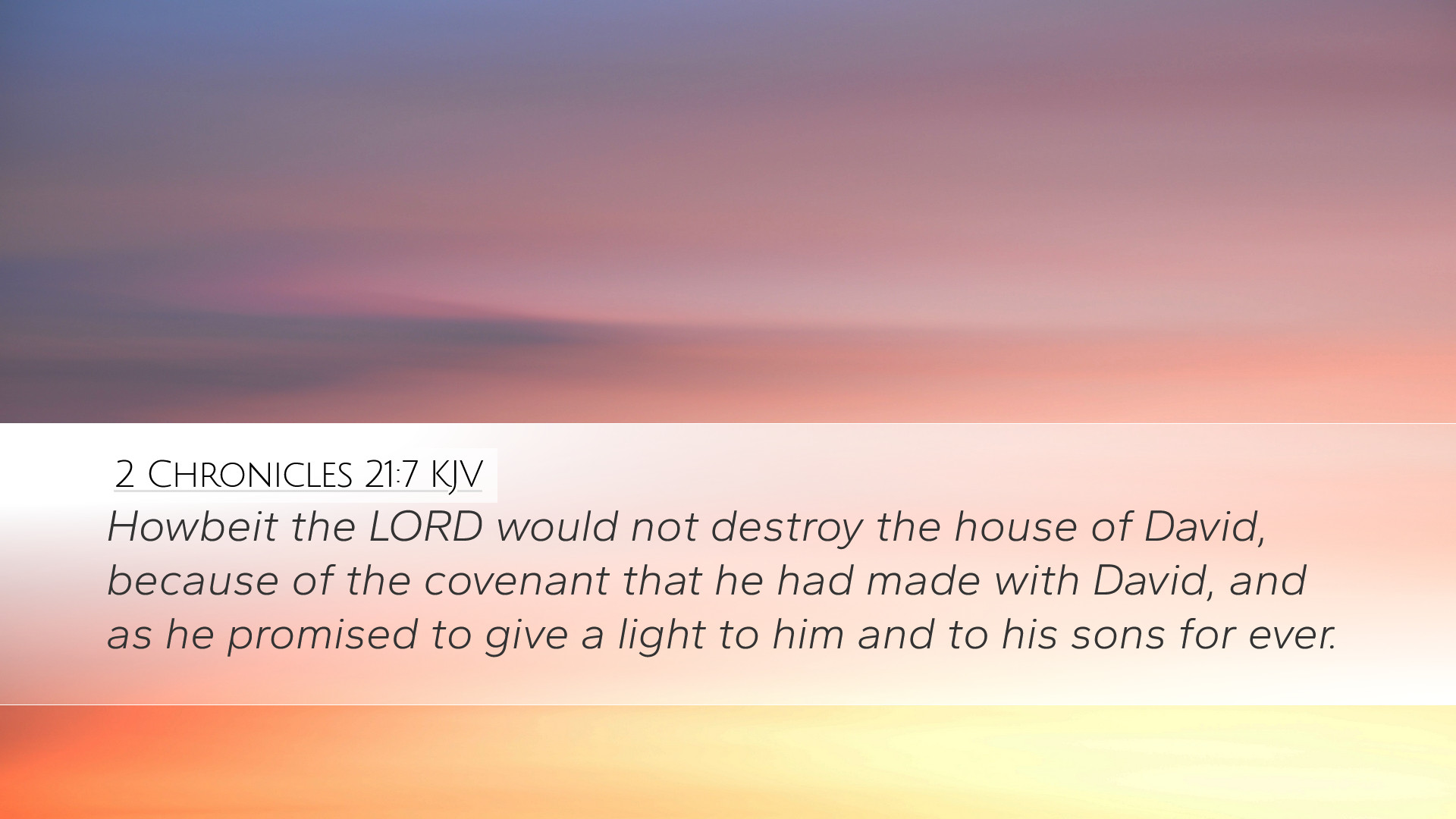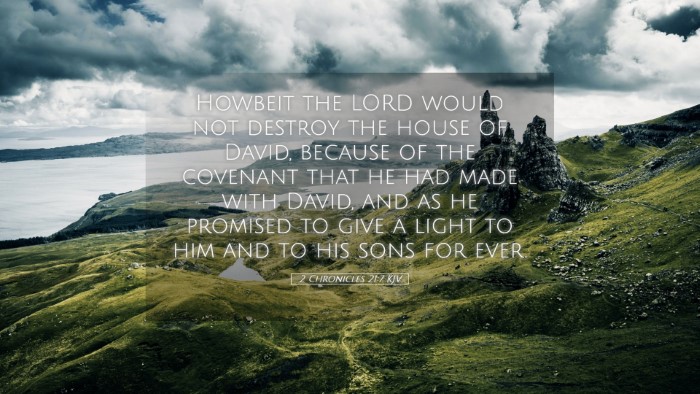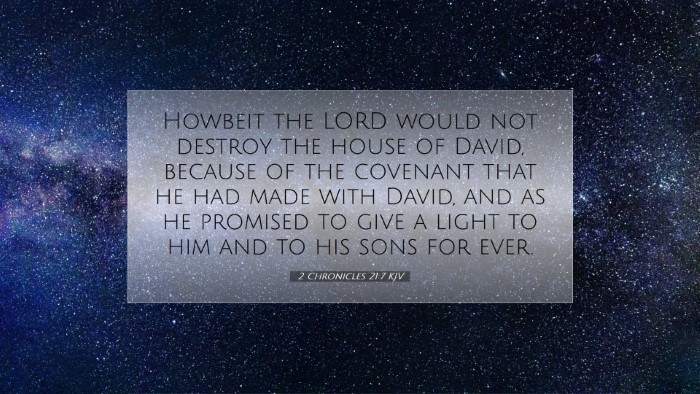Commentary on 2 Chronicles 21:7
2 Chronicles 21:7 states, "Nevertheless, the Lord would not destroy the house of David, because of the covenant that he had made with David, and as he promised to give a light to him and to his sons for ever." This verse highlights God's faithfulness to His covenant, despite the unfaithfulness of His people.
Understanding the Context
To appreciate the depth of this verse, it is essential to understand its historical and theological context. King Jehoram, the son of Jehoshaphat, reigned during a difficult period in Judah’s history. Jehoram's actions, which included marrying into the family of Ahab and following in the ways of Israel’s kings, led to a departure from the covenantal faithfulness of his father.
The Covenant with David
Central to this passage is the profound significance of God’s covenant with David. According to Matthew Henry, this covenant assured that David's descendants would rule in Israel and serve as a reminder of God's steadfast love and commitment. When Jehoram turns away from God, one might expect immediate judgment, but the Lord preserves the Davidic line out of reverence for His covenant.
God’s Faithfulness Despite Human Failure
Albert Barnes pointed out that this verse teaches a critical theological principle: God remains faithful even when humanity falters. Although Jehoram led Judah into sin, God’s promise did not waver. This reflects the broader narrative of Scripture where divine fidelity transcends human disobedience. God's desire to uphold His promise serves as a foundation for understanding His interactions with His people.
Theological Implications
- Divine Mercy: The mention of “the Lord would not destroy” indicates that while judgment was inevitable due to sin, mercy was equally present. God’s intention to preserve a remnant speaks to His overarching plan for redemption.
- Hope for Restoration: The promise to give a “light” to David’s sons symbolizes the hope of future restoration and guidance, reminding believers of the expectation of the Messiah—a central theme in the Christian faith.
- Covenantal Theology: This verse highlights the necessity of understanding the covenants throughout Scripture. The covenant with David is foundational for the New Testament revelation of Christ as the ultimate fulfillment.
Practical Application for Today’s Believers
The faithfulness of God as illustrated in this verse encourages modern readers to trust in His promises. In pastoral ministry and personal faith, it is essential to remember that God’s commitment to His people remains firm. The church, much like Judah, often struggles with sin and disobedience, yet God's mercy offers hope and restoration.
Conclusion
“Nevertheless, the Lord would not destroy the house of David…” serves as a powerful reminder of God’s unchanging nature. The insights derived from Adam Clarke affirm this notion, emphasizing that God’s covenant will ultimately lead His people to redemption despite their failings. As we reflect on 2 Chronicles 21:7, let us reaffirm our understanding of God’s faithfulness, our need for repentance, and our hope in Christ, who embodies the promises given to David.


